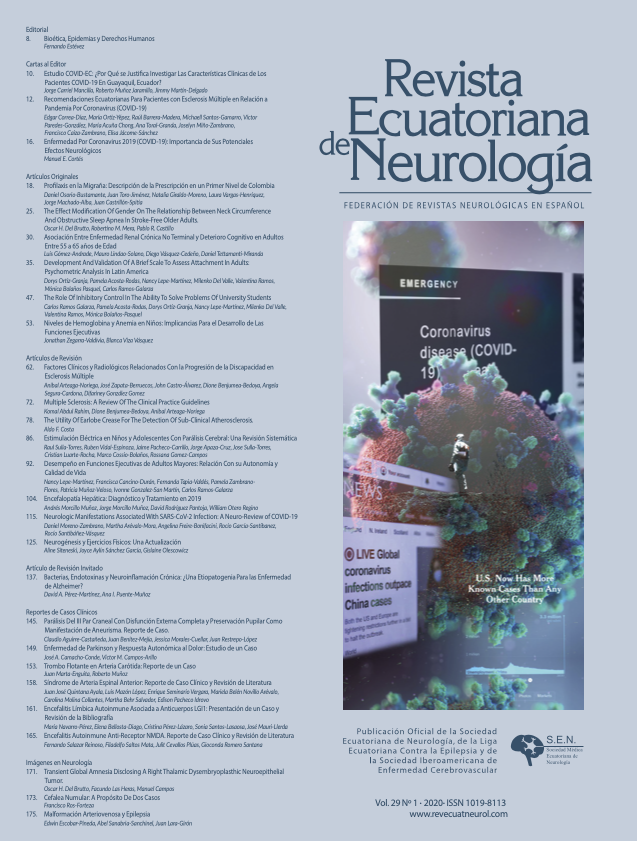Abstract
Introduction: Leucine rich glioma inactivated protein 1 (LGI1) antibody encephalitis is a rare disease characterized by subacute memory impairment, behavioral disorders and epileptic seizures. Even most cases have a good outcome, residual cognitive deficits are common.
Case report. A 76 years old woman who started with acute onset generalized tonic – clonic seizures and subsequent impaired level of consciousness. Antiepileptic treatment was started with slight clinical improvement. In magnetic resonance imaging performed during admission left hippocampal hyperintensity was seen in T2 and T2-FLAIR sequences. As autoimmune limbic encephalitis was suspected, immunomodulatory treatment with intravenous corticosteroids and immunoglobulins was started with clinical improvement. Afterwards, anti–LGI1 antibodies were positive in cerebrospinal fluid testing.
Conclusions. Anti–LGI1 antibody related encephalitis can produce different neurological manifestations and diverse onset, even acute. Early immunomodulatory treatment is important to improve both clinical manifestations and long–term outcome.

